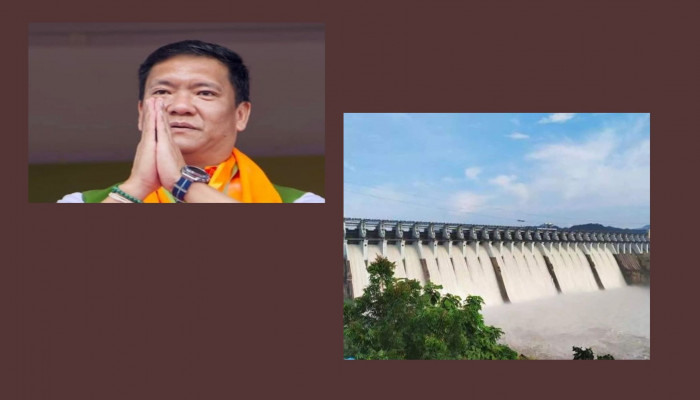Arunachal CM warns of ‘water bomb’ over China’s mega dam proposal
- In Reports
- 09:56 PM, Jan 25, 2025
- Myind Staff
Arunachal Pradesh Chief Minister Pema Khandu on Friday expressed grave concerns over China’s proposed construction of the world’s largest hydropower project on the Yarlung Tsangpo River. Highlighting the potential risks, Khandu warned that the project could have devastating consequences for Arunachal Pradesh and Assam. He emphasised that sudden releases of water from the dam could lead to severe flooding in downstream regions. Additionally, he cautioned that the hydropower project might be strategically leveraged by China as a "water bomb," posing significant threats to the safety and stability of the region.
"If China uses it as a water bomb, it will completely affect the Adi tribe (who reside in the Siang district of Arunachal Pradesh) and millions in Assam and as far as Bangladesh. It’s a matter of big concern,” he told reporters on the sidelines of a seminar.
Chief Minister Pema Khandu also pointed out a significant concern that China is not a signatory to global treaties on water management, which exacerbates the risks associated with its hydropower project on the Yarlung Tsangpo River. The river, which enters Arunachal Pradesh as the Siang and later becomes the Brahmaputra in Assam before flowing into Bangladesh, is a critical water resource for the region.
Speaking at the inaugural session of a seminar titled ‘Environment and Security,’ Khandu highlighted that the proposed dam would give China the ability to control the timing and volume of water flowing downstream. This, he warned, could have disastrous effects during periods of low flow or drought, further threatening the ecological balance and water security of the region.
“The mighty Siang or the Brahmaputra River would dry up during winters disrupting life in the Siang belt and the plains of Assam,” he cautioned. The chief minister said that sudden releases of water from the dam could also cause severe floods downstream, particularly during monsoon seasons.
“China’s construction of the world’s largest hydropower dam on the Yarlung Tsangpo River poses significant risks to the water security, ecology, and livelihoods of millions of people downstream in Arunachal Pradesh, Assam, and Bangladesh. The potential disruption of water flows, flooding, and ecosystem degradation could have far-reaching consequences on us,” he added.
He also warned about the dam's impact on the ecology of India and China.
"Tibet is often referred to as the ‘Water Tower of Asia’, supplying water to over a billion people in the region. Its environmental health is critical not only to China and India but also to much of Asia. Therefore, India, given its direct dependency on Tibet’s rivers and climate patterns, has a significant role to play in global environmental conservation efforts,” Khandu added.
China has reiterated its plan to construct the world’s largest dam in Tibet near the Indian border, asserting that the project has undergone rigorous scientific verification and will not negatively impact downstream countries, including India and Bangladesh.
Estimated to cost approximately USD 137 billion, the dam is set to be built in the ecologically fragile Himalayan region. This area is located along a tectonic plate boundary prone to frequent earthquakes, raising significant concerns about the project's environmental and geological implications.







Comments